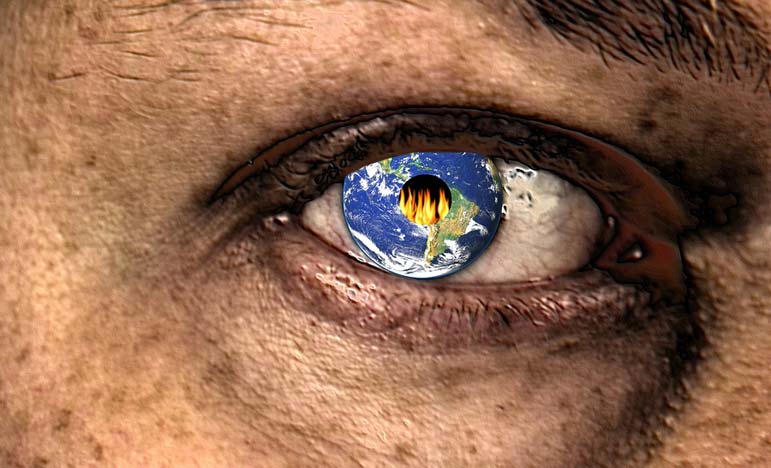
But as Sisi knows, and as his speech suggests, the fact that the Islamic world is a source of danger and destruction is all too conceivable. Indeed, it's been on display, in plain sight, for years—both throughout the Middle East and of course in New York on September 11, 2001, and now in Paris on January 7, 2015.
The jihadist threat is real, and it must, obviously, be fought and defeated. But that raises another problem—not a problem with Islam, but a problem with the West.
We have lost our nerve. In recent years, the attitude of Barack Obama has prevailed over the spirit of Charlie Hebdo. The claims of sensitivity have trumped the attachment to freedom. Appeasement of jihad has supplanted the war on terror. Most fundamentally—let's be honest—fear has overwhelmed courage.
And so the American president has been happy to proclaim, as he did at the United Nations in September 2012, "The future must not belong to those who slander the prophet of Islam." He has been less willing to say that the future must not belong to those who kill in the name of the prophet of Islam. And he has certainly been unwilling to act in such a way as to ensure that the future does not belong to the killers.
Having failed in the past to stand with the brave editors and cartoonists of Charlie Hebdo, politicians raced this week to the microphones and to Twitter to proclaim, as one of them put it in a Tweet, "Aujourd'hui nous sommes tous Charlie."
The relevant word is aujourd'hui. Yes, today the bien-pensants are all Charlie. But only today—not yesterday, and, we suspect, not tomorrow. Liberal politicians and enlightened intellectuals throughout the West have precisely failed to stand with Charlie Hebdo when it mattered most. And faced with the real-world difficulties of not just standing for liberty but actually going on the offensive against the jihadists on behalf of liberty, the West has shrunk from the task. Only a few short years after 9/11, we in the West have not been willing to bear the burdens of a policy that takes jihad seriously.
Perhaps January 7, 2015, will be a marker, a dark and terrible marker, that awakens us to the consequences of our inaction. Perhaps January 7 will overcome our weariness in dealing with the threats we face, a weariness made worse by leaders who justify and cater to it. Perhaps January 7 will cause us not merely to say, "We are Charlie Hebdo," but will lead us to act with more of the bravery of the French cartoonists. Perhaps January 7 will be the day when fear masked as sensitivity gives way to a vigor that calls forth courage. In late 1936, Winston Churchill warned the House of Commons, "The era of procrastination, of half-measures, of soothing and baffling expedients, of delays is coming to its close. In its place we are entering a period of consequences."
We face a crisis of Islam. We need to be clear-eyed about that. But we also face a crisis of the West. Only if we come to grips with that second crisis will this period of consequences turn out to be an occasion for renewal rather than another marker on the path to decadence. Only then will we show (to paraphrase William Gladstone) that the resources of civilization against terror are by no means exhausted.
The desperate desire on the part of Western leaders to proclaim Islam a religion of peace now looks farcical. But the problem isn't simply that real, existing Islam is not a religion of peace, as Sisi acknowledged. The problem is that the liberalism of the West has become a religion of peace, which leads in practice to the appeasement of terror. Back in 1978, Harvey Mansfield wrote, "From having been the aggressive doctrine of vigorous, spirited men, liberalism has become hardly more than a trembling in the presence of illiberalism. . .. Who today is called a liberal for strength and confidence in defense of liberty?"
The editors and cartoonists of Charlie Hebdo remind us of a better liberalism. But that liberalism has receded. Nor do conservatives have cause to be smug. How many of them are confident and resolute in their defense of liberty?
We have met the enemy, most recently in Paris, and it is violent jihad. But it would be a disservice to the brave men and women of Charlie Hebdo if we did not acknowledge after this week's events that we have also met the enemy, and he is us.
Comment by clicking here.
William Kristol is editor of The Weekly Standard, which, together with Fred Barnes and John Podhoretz, he founded in 1995. Kristol regularly appears on Fox News Sunday and on the Fox News Channel.



 Contact The Editor
Contact The Editor
 Articles By This Author
Articles By This Author